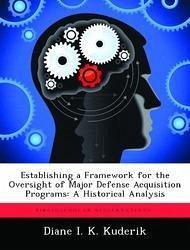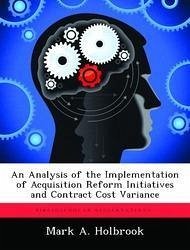
Establishing a Foundation to Capture the Cost of Oversight for a Major Defense Program Within the Information Technology Acquisition Community
Versandkostenfrei!
Versandfertig in über 4 Wochen
54,99 €
inkl. MwSt.

PAYBACK Punkte
27 °P sammeln!
In 1970 the Department of Defense introduced the Department of Defense Directive 5000 to standardize the acquisition process; the directive created oversight forums to ensure the policies and procedures created were followed, track program progress, and identify programs in trouble. Although oversight was essentially created to help reduce the cost of acquisitions, there is reason to believe that it may increase the costs; however, because there has only been a few studies conducted that estimated the cost of oversight no one knows how much oversight costs individual programs. Numerous oversig...
In 1970 the Department of Defense introduced the Department of Defense Directive 5000 to standardize the acquisition process; the directive created oversight forums to ensure the policies and procedures created were followed, track program progress, and identify programs in trouble. Although oversight was essentially created to help reduce the cost of acquisitions, there is reason to believe that it may increase the costs; however, because there has only been a few studies conducted that estimated the cost of oversight no one knows how much oversight costs individual programs. Numerous oversight processes are being used today, but no research shows one process is any different from the other. Nor have studies been done to determine the cost drivers for oversight. This thesis will provide a foundation and potential cost saving recommendations that would benefit the Department of Defense in most of the acquisition programs it monitors. An estimated cost of oversight will be calculated for programs following three different oversight processes using the Delphi Methodology. The estimates will be compared to determine if there are any statistical differences between them. A future track for the next generation of oversight processes will develop from the recommendations.














